B-TV: Part Two - Re-Open For Business
 Friday, October 28, 2011 at 6:31AM
Friday, October 28, 2011 at 6:31AM Made as a 90-minute pilot for a TV show that never happened, Bates Motel is an especially interesting example of the B-TV phenomenon. Essentially a TV sequel to Alfred Hitchcock’s Psycho, the movie ignores the two other film sequels that preceded it and imagines a new scenario in which Norman Bates died in the insane asylum he was sent to after his infamous murder spree.
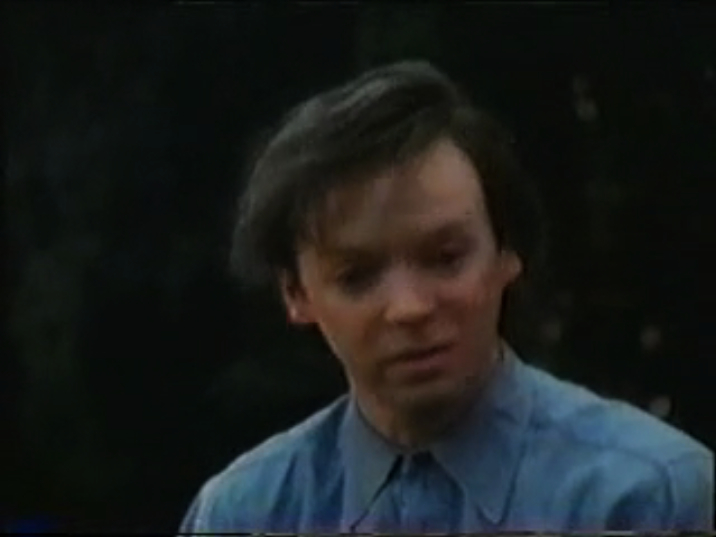 We only actually see Bates (played by a not entirely convincing Anthony Perkins lookalike) briefly in one flashback scene and some photographs. Our protagonist instead is Alex West (Harold & Maude’s Bud Cort), a fellow patient who befriended Norman as a boy, when he was sent to the asylum after fatally pushing his abusive stepfather into a dry-cleaning machine. Following Norman’s death, Alex discovers he has inherited the motel where Janet Leigh’s Marion Crane famously met her end in the shower. Judged cured by the same doctor who encouraged his friendship with Norman, Alex finds himself out in the real world for the first time in over 20 years, ready to become a hospitality entrepreneur.
We only actually see Bates (played by a not entirely convincing Anthony Perkins lookalike) briefly in one flashback scene and some photographs. Our protagonist instead is Alex West (Harold & Maude’s Bud Cort), a fellow patient who befriended Norman as a boy, when he was sent to the asylum after fatally pushing his abusive stepfather into a dry-cleaning machine. Following Norman’s death, Alex discovers he has inherited the motel where Janet Leigh’s Marion Crane famously met her end in the shower. Judged cured by the same doctor who encouraged his friendship with Norman, Alex finds himself out in the real world for the first time in over 20 years, ready to become a hospitality entrepreneur.
Once he arrives in Fairville (renamed from the original’s Fairvale), Alex is met with nothing but incredulity when he insists he's there to reopen the Bates place. Local handyman Henry Watson (Moses Gunn), who used to do small jobs for Norman and his mother back in the day, tells Alex all about what happened there and why folks might be reluctant to see the motel re-opened. The town’s bank manager, Tom Fuller (Gregg Henry), is at first excited by the news that Alex has gotten his hands on the property, but is stunned to learn he has no interest in tearing down the motel and putting a condo development in its place. Despite this, he agrees to give Alex a loan to rebuild the place anyway.
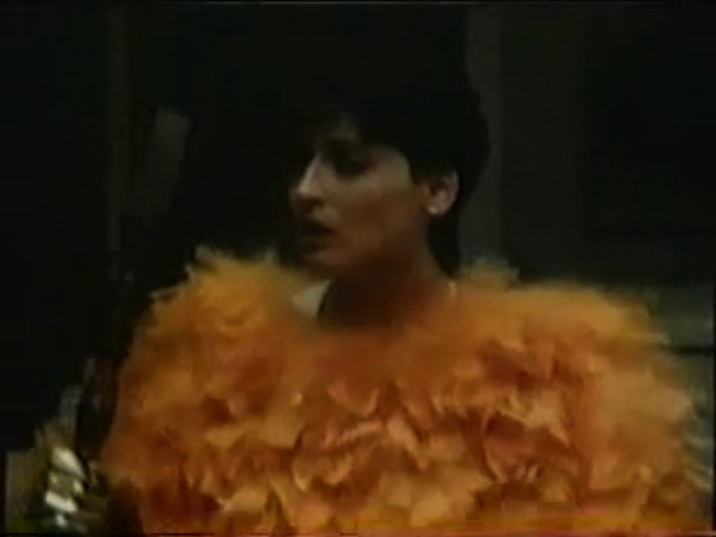 Upon moving into the property’s famous house, Alex learns he’s not alone, as a local runaway named Willie (Lori Petty) has been squatting there for the past few months. She convinces him to let her stay and help out around the place, despite his strong conviction that this is something he has to do by himself.
Upon moving into the property’s famous house, Alex learns he’s not alone, as a local runaway named Willie (Lori Petty) has been squatting there for the past few months. She convinces him to let her stay and help out around the place, despite his strong conviction that this is something he has to do by himself.
Alex hires Henry to take on the reconstruction, during which the bodies of Mr. and Mrs. Bates both managed to be unearthed, seriously unnerving the crew. At night, Alex is tormented by visions of Norman’s mother around the property, forcing us to wonder if the place is haunted or if he has been released from the asylum too soon.
Eventually the motel is ready to open. Alex admits to Willie that a lot is on the line. His first payment to the bank is due the next day. She asks him how much he has to pay, and is shocked to find out that he owes $10,000. It seems impossible that the small motel can come up with that kind of money in just one night, but Alex—as nervous as he is—remains convinced that everything is going to turn out alright.
Before they know it, their first guest arrives. Barbara Peters (Kerrie Keane) is an aerobics instructor who tells Alex she’s there to work on a book she’s writing, but the truth is that she has come to the motel to commit suicide, spurred by her three failed marriages and uncertain future.
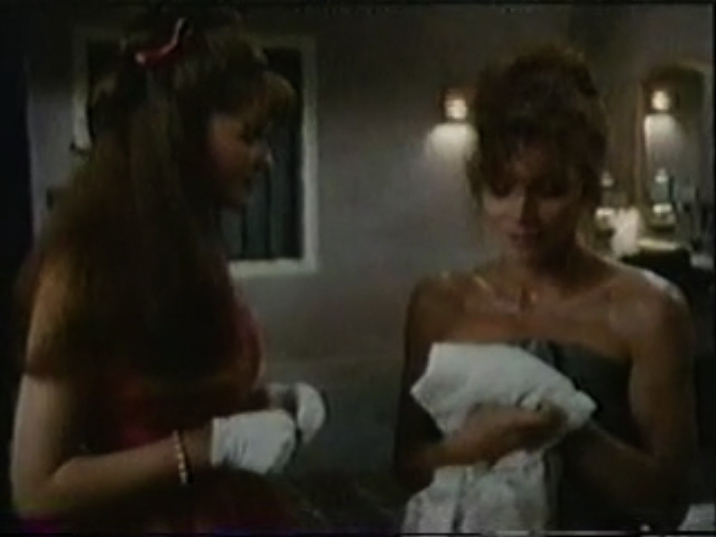 But before she can slit her wrists, the rest of the motel becomes fully booked when a group of teenagers in strangely old-fashioned clothes arrive to have a party. One of the teens, Sally (Khrystyne Haje), walks into Barbara’s room by mistake and somehow convinces the older woman to join them. There at the party, she is introduced to the shy, quiet, Tony (Jason Bateman), who she is strongly attracted to, despite their age difference.
But before she can slit her wrists, the rest of the motel becomes fully booked when a group of teenagers in strangely old-fashioned clothes arrive to have a party. One of the teens, Sally (Khrystyne Haje), walks into Barbara’s room by mistake and somehow convinces the older woman to join them. There at the party, she is introduced to the shy, quiet, Tony (Jason Bateman), who she is strongly attracted to, despite their age difference.
While this goes on, Willie has taken it upon herself to look into the suspicious connection between one of the members of the construction crew and Tom Fuller. Could it be more than a coincidence?
Barbara and Tony almost kiss, but she stops before it happens, insisting that she’s far too old to share such a moment with someone his age. He runs off, and she follows him. Outside the motel, he tells her how cold and lonely he feels, and she comforts him as best she can. When she leaves him to return to her hotel room, she picks up the razor she had brought to end her life and is shocked when Sally appears in the room, despite the locked door. Sally explains that she knows why Barbara is there and how she feels. She insists that after a person commits suicide their misery doesn’t end, but continues in a place that is cold and lonely.
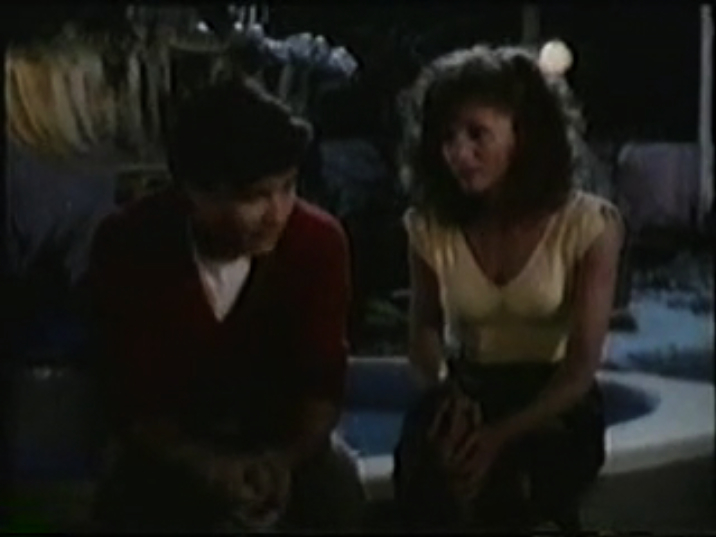
Barbara remembers Tony using those exact same words and accuses Sally of spying on them. Sally tells her that she did no such thing and that she knows what she’s talking about because she committed suicide nearly 30 years earlier. She opens the window to Barbara’s room and outside sit all of the kids in outdated clothes, including Tony. They all tell Barbara their names, date of births and the day they committed suicide. After they have all spoken, they leave her alone to decide what she should do that night.
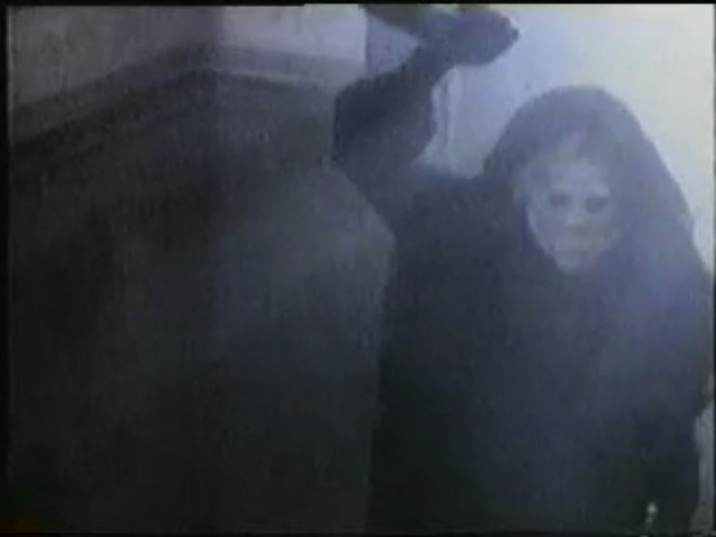 As they leave, Alex returns to the house and is horrified by the sight of Mrs. Bates at the top of the stairs. She comes running at him with a knife, but is tackled by Henry before she can hurt him. Henry rips off her mask and reveals Tom Fuller, who’s been trying to drive Alex crazy to get his hands on the valuable property. He insists the cops would never believe Alex’s story, but shouts out a panicked confession when “the real” Mrs. Bates appears from another room to attack him. In this case, it’s Willie, armed with a tape recorder, which she threatens to take to the police unless Fuller agrees to renegotiate Alex’s loan payments. Turns out Alex was right and everything did work out in the end.
As they leave, Alex returns to the house and is horrified by the sight of Mrs. Bates at the top of the stairs. She comes running at him with a knife, but is tackled by Henry before she can hurt him. Henry rips off her mask and reveals Tom Fuller, who’s been trying to drive Alex crazy to get his hands on the valuable property. He insists the cops would never believe Alex’s story, but shouts out a panicked confession when “the real” Mrs. Bates appears from another room to attack him. In this case, it’s Willie, armed with a tape recorder, which she threatens to take to the police unless Fuller agrees to renegotiate Alex’s loan payments. Turns out Alex was right and everything did work out in the end.
The next morning, Barbara walks out of her motel room very much alive. Alex tells her to come back soon, which causes her to adopt a nervous smile. As she drives off, Alex looks directly into the camera and speaks right to us for the first time, saying:
Written and directed by Richard Rothstein, who also wrote the 1984 Wes Craven B-TV classic Invitation to Hell, Bates Motel is an interesting effort whose flaws work hard to disguise a truly interesting concept. Had the pilot been successful and actually gone to series, I suspect the result would have been the kind of short-lived cult show that fans discuss ad naseum today (think Max Headroom).
For me the most fascinated aspect of the potential series is its protagonist. As portrayed by Cort, Alex is a naïve innocent barely ready for the realities of the modern world, yet his history proves that he is capable of protecting himself when forced. He’s not a traditional hero, but he’s genuinely likable, which makes the fact that the movie’s ending suggests the series would have him take on the role of Rod Serling-esque anthology host very intriguing. Neither mysterious or dangerous, he would have been the first character of his kind to project an air of vulnerability rather than Uatu-like ambivalence.
It’s hard to say what the tone of the series might have been. Barbara’s story is more preachy than scary, but is thankfully saved from being unbearable by the excellent performances of all involved. I suspect, like The Twilight Zone, a Bates Motel series would have attempted to touch upon all kinds of storytelling, but that’s just pure conjecture.
That said, there are several things that work against the film. The soundtrack is truly horrible, filled with a cheap canned score that ruins several important moments. I’ve always been in the minority who’s found Lori Petty to be a charming performer, but the character of Willie is just too irrational and emotional to sympathize with (she literally leaves and comes back three times in the course of the movie). But the worst aspect is the cheesy Scooby-Doo mystery involving the banker’s attempt to steal the land. It’s trite and obvious to begin with, and only made more with an actor as obviously oily as Gregg Henry cast in the villain’s role.
Still, Bates Motel (which has never officially been released on video in North America) is still worth seeking out, if only to appreciate what happens when an imaginative concept is undone by imperfect execution.
